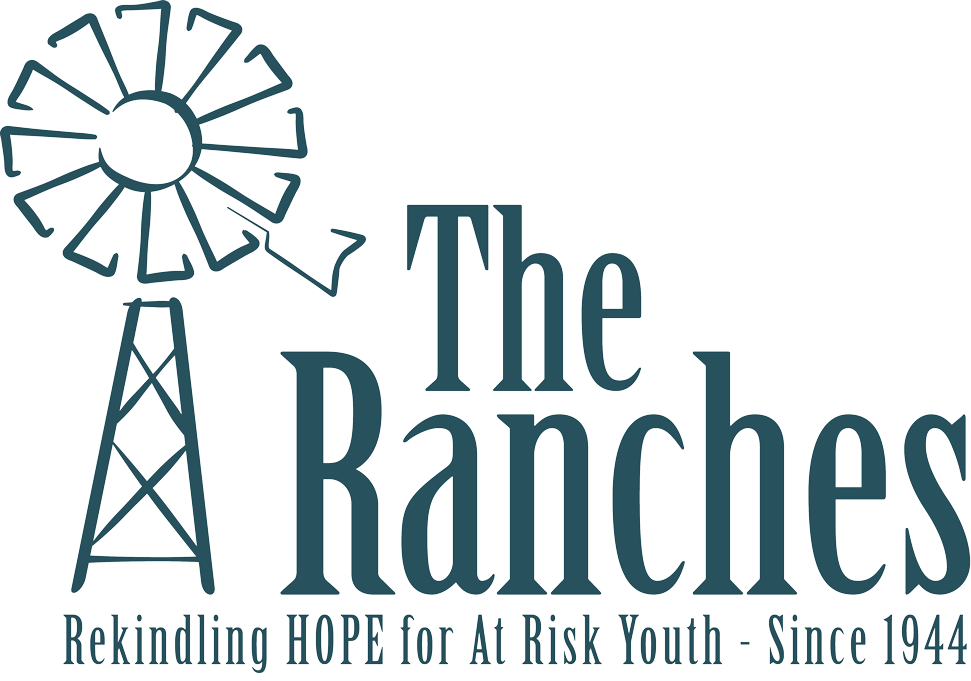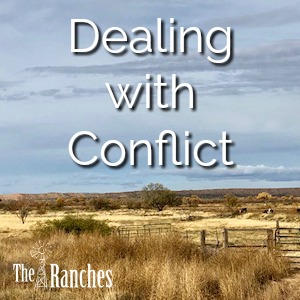Dealing with Conflict doesn’t end at any point in your life. Learning to deal with conflict rather than avoid it is something that every human needs to learn.
We have, for the most part, become a conflict avoidant culture. We work very hard to make sure that we aren’t seen as aggressive or angry and we expect others to do the same. Keeping our feelings, particularly our negative feelings about others, to ourselves is much easier than confronting the negative behaviors and attitudes of those around us. This is especially true of our loved ones. We work very hard to make sure that conflict does not separate us emotionally from those we care most about. When you think about this, it makes sense. Ignoring and “letting go” of our negative emotions and feelings towards others is far easier than risking the damage to the relationship that can come when issues are dealt with honestly and bluntly. Additionally, avoiding conflict can help shield us from the inevitable criticism that comes in return from the person that we are struggling with. This, to the conflict avoidant personality, seems like a win-win situation. “Why bring up something uncomfortable and have to drudge through the difficult criticism that will be expressed back? I’ll just let it go.”
While this can be a successful strategy for minor negative issues, it typically doesn’t work as well for bigger issues. Generally, these bigger issues, when left undealt with, turn to frustration, unhappiness and, eventually, contempt for those who represent conflict, anger and aggression. At The Ranches, we deal with many families who are, for the most part, conflict avoidant. They have a tight family system that worked well when the children were younger, but is now in chaos. This chaos is often blamed on the child who is not willing to avoid conflict and keep the peace within the family. While it is simplistic to think that the conflict oriented child is to blame for the problems in the family, it is often expressed that way. “If Johnny wasn’t so angry and would just be respectful of authority, everything would be just fine!” While often expressed, this rarely turns out to be true as the issues are far deeper than Johnny’s anger and all members of the family contribute to dysfunctional habits within the family. Johnny has just learned that, if he embraces conflict, he can control the other members of the family. They will disengage and Johnny can then feel powerful and do what he likes. This makes for a toxic and untenable situation for the parents and other conflict avoidant members of the family. This is usually when we get a call at The Ranches. This dynamic is not unique to us and is usually present at different times in any given family. This is particularly true during a child’s teenage years. Simplistically, conflict avoidant parents think that they will, inadvertently, raise conflict avoidant children. But it isn’t that simple. At their core, conflict avoidant people are sensitive to criticism (especially criticism expressed in anger) and, more importantly, to rejection. Their desire to avoid conflict stems from their desire to avoid criticism and, in doing so, limit the opportunities for rejection. In contrast, conflict oriented people are sensitive to change (especially the minor changes in interaction that come when a conflict avoidant person is frustrated but in the process of “letting it go”) and, more importantly, to the loss of perceived control in the relationship. Additionally, conflict oriented people are usually accustomed to and calloused toward, criticism. They typically have a plethora of experience dealing with rejection. While this may sound like an indictment of the parents and other family members, I assure you it is not. Every child reacts to and processes their world a bit differently. Friends, teachers, transitions between grades, the opposite gender, weight, height, being described as unattractive or “ugly”, family stress and siblings all have a unique impact on every child. Furthermore, there is no way to predict a child’s reaction and there is no way for parents and family members to be present during every event that may cause an issue. And so… the dynamic is set. The conflict avoidant members of the family conceal their negative emotions in an effort to minimize the risk of criticism and rejection. At the same time, the conflict oriented member of the family is overtly expressive of their negative emotions in an effort to force the other members to be honest. From their perspective, if everyone would express their negative emotions, then we could deal with and argue through those negative emotions. In their opinion, this would allow them, the conflict oriented person, to feel that they have the ability to react to, control and influence the criticism and rejection. They view this safer and preferable to avoiding it all together. “I can’t control what I don’t know about!” is a common expression for conflict oriented young people. While kids are with us, we work to help them learn to deal with conflict in a healthier and more productive way. While this can be difficult, it is necessary in order for the family to heal. While the conflict avoidant family members tend to appreciate this, we do not stop there. We also work with the family to be less avoidant of conflict and to develop some healthy ways to express difficult emotions and to address the behaviors of everyone in the family. While difficult, we have found that we have to address both sides.
Tips for the Conflict Avoidant
- Remember, avoiding conflict just causes it to grow and intensify
- You can handle the negativity
- The feelings of others aren’t necessarily criticism of you
- The person you are in conflict with wants emotional closeness from you
- You cannot ignore another person into feeling loved
- You aren’t, and have never been, incapable, bad or unlovable…quite the opposite
- You may be talking to someone who has been criticized repeatedly
- You may be paying for the “sins” of others
- This is your way of controlling the world around you
- The conflict oriented person is desperately wanting to get back to normal
Tips for the Conflict Oriented
- Remember, your emotions overwhelm the person you love
- Slow down
- Avoid “always” and “never”
- If you can hear the other person, you can get back to being close
- You aren’t and have never been entitled to be hateful or abusive
- Don’t assume that their sensitivity to criticism is weakness
- You cannot control the avoidant people in your life and be emotionally close to them
- If they didn’t love you, they would leave and not look back
- Apologize when you see that you hurt them
- This is your way of controlling the world around you
Advice for the Conflict Avoidant
- Schedule a time and a time limit for others to address negative feelings
- Remind yourself often that the other person loves you
- Take a break when you get overwhelmed
- Learn to say, “I can see your point.”
- Avoid being passive aggressive
- Decide, ahead of time, how long you will allow yourself to hold onto your anger
- Let go when the time is up
- Remind yourself to let go when it’s over (you were planning to let go anyway – avoid)
Advice for the Conflict Oriented
- Respect the limits of the person who is conflict avoidant
- Don’t argue with their perspective – it may not be criticism
- Remind the other person that you love them
- Learn to say, “I hadn’t thought of it that way.”
- Avoid “beating a dead horse”
- Allow the other person time to reset…then double it
- Stop talking when the time is up
- Force yourself to let go when it’s over. You got what you needed
- It will take time for things to get back to normal and that’s OK
Both parties need to remind themselves that you love the other person and that the reason for the conflict is that you have the ability to hurt each other. It also helps to remember that the conflict avoidant person avoids conflict because it is a part of who they are. Additionally, it helps to remember that the conflict oriented person needs to resolve conflict in order to move forward with you. It is a part of who they are.

